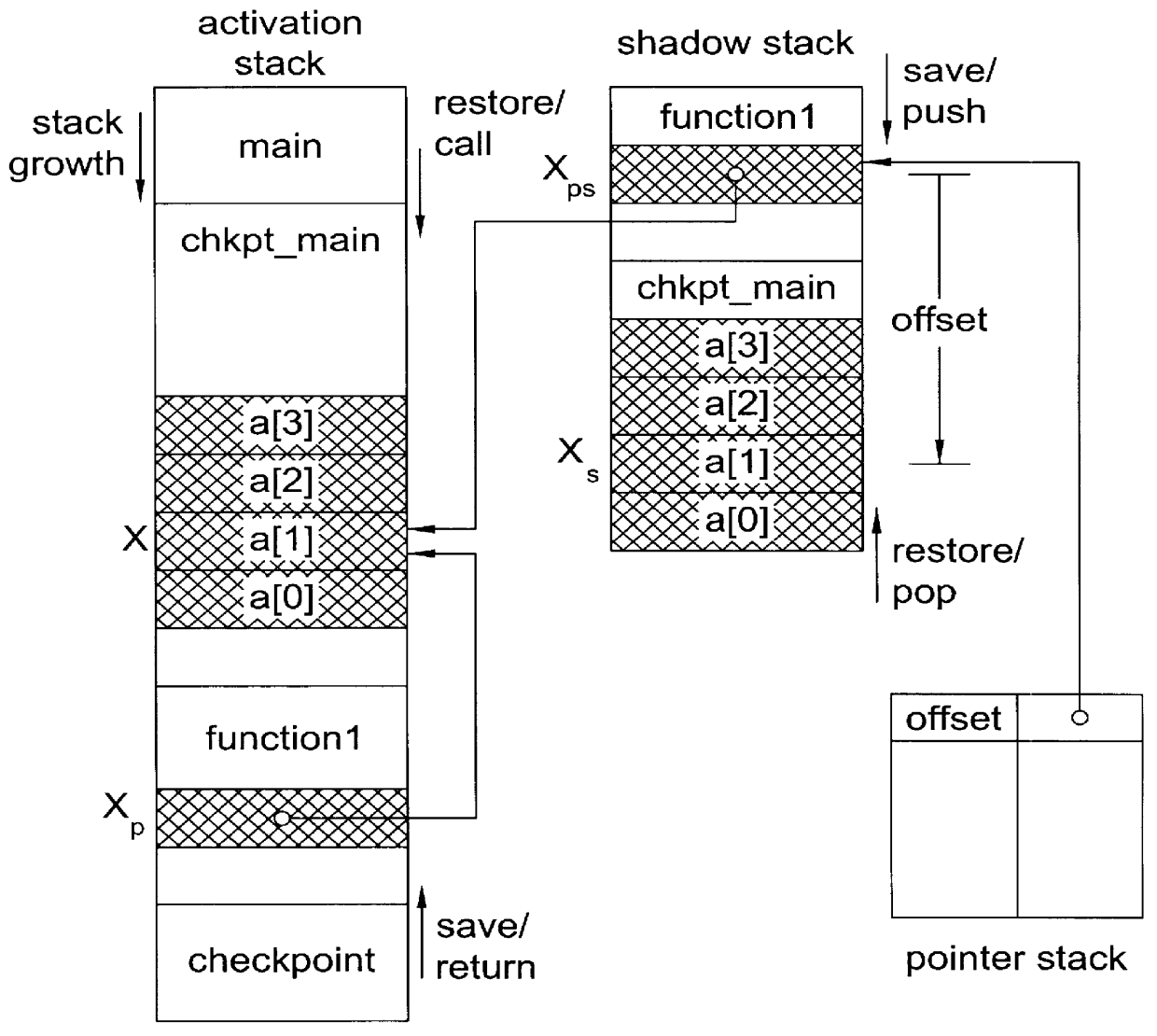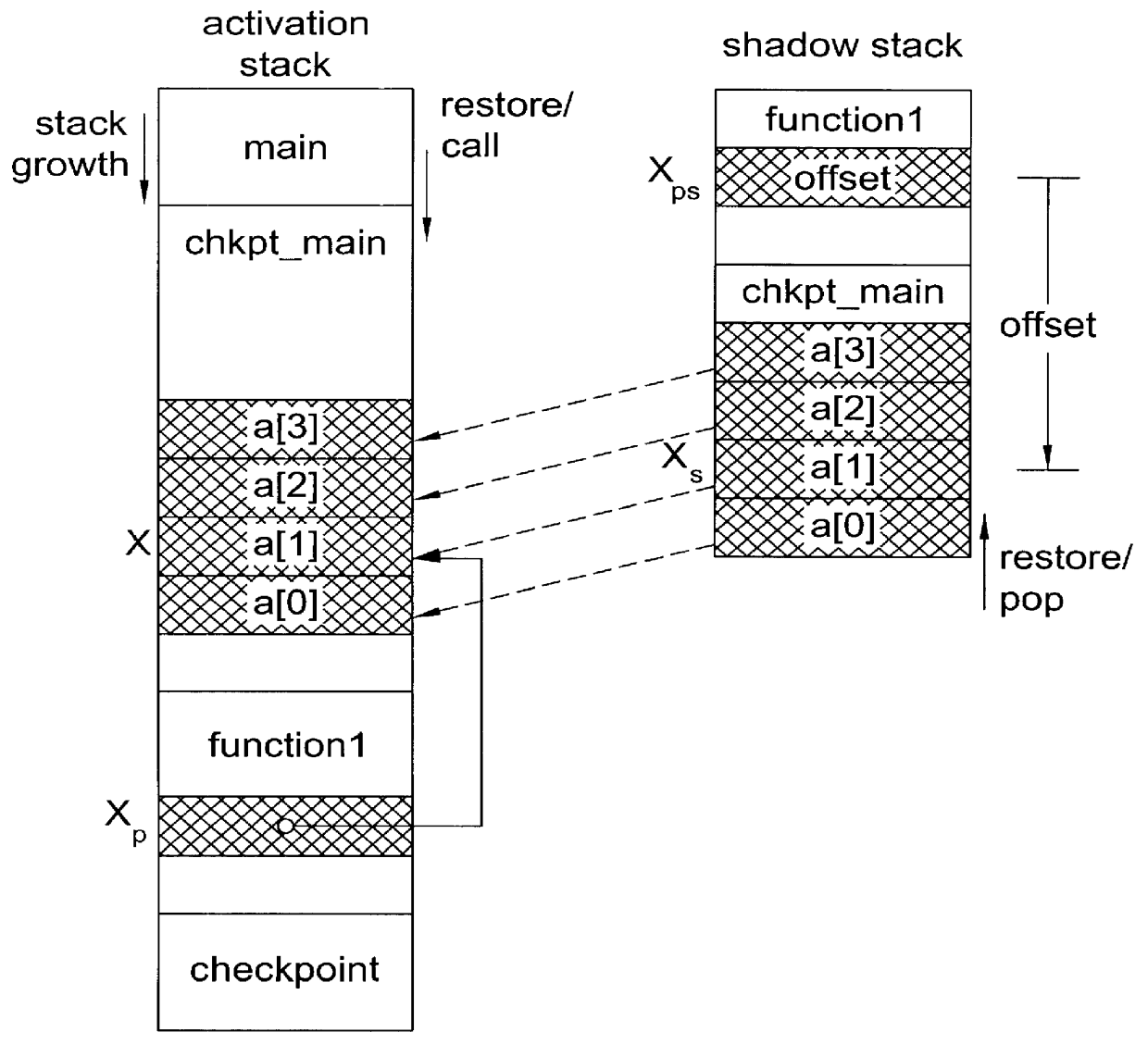Simple probabilistic analysis suggests that such large geographically distributed systems will exhibit a
high probability of single failures, even if each individual component is quite reliable.
Even on such systems, failures occur frequently due to a variety of reasons including network failures, process failures, and even administration
downtime.
Providing
fault tolerance in such environments is a key technical challenge, especially since it requires that checkpointing and
recovery be portable across the constituent architectures and operating systems.
Unfortunately, no one has been able to develop the technology (
software of otherwise) that provides for
machine independent state generation and restoration for general-purpose
programming languages.
Current technology requires companies (e.g., IBM, Intel, Boeing) to invest heavily in replicated hardware, or spend substantial effort and time running long and complex simulations to identify and debug flaws and potential weaknesses in their product designs.
While yielding very low checkpointing overhead, a primary
disadvantage of this method is that is restricted to binary compatible hardware and operating systems.
This work does not address portability.
In Proceedings of the Usenix Winter Technical Conference, San Francisco, Calif., January 1995) have proposed efficient implementation techniques to minimize the overhead of checkpointing to few percent of the
execution time, The techniques developed in these references rely on efficient page-based bulk
copying and hardware support to identify memory pages modified since the last checkpoint, Unfortunately, these optimizations are restricted to binary compatible hardware and operating systems.
Unfortunately, such methods severely compromise performance since they run at least an
order of magnitude slower than comparable C programs.
Although the authors defend this method in the context of dynamically allocated
shared memory, such an organization is clearly impractical for the runtime stack, which has to be converted too when saving a checkpoint.
Moreover, the poor data locality caused by this data organization is likely to result in a significant loss in performance.
Dome provides checkpointing at multiple levels,
ranging from high level user-directed checkpointing that sacrifices transparency for portability and
low overhead, to low level checkpointing that is transparent but results in non-portable code and requires larger checkpoints.
The flexibility afforded by pointers provides the real technical challenge when supporting portable checkpointing.
Finally, each
workstation typically presents the
programmer / user with a choice of compilers, which are typically incompatible with each other.
This diversity in platforms makes it very difficult to recover from failure on one
machine on a different
machine on the network.
Since users frequently run legacy codes, it is not reasonable to require them to specify where in the code checkpoints must be taken.
Upon failure, it is not reasonable to assume a binary compatible processor using the same
operating system is always available.
The available memory may even limit the problem size of the program.
The primary obstacle for portability is the variety of representation and sizes of basic data types and the
data layout in memory.
Although most recent architectures support the IEEE
floating point standard 754, there is no agreement about implementing little endian and big endian memory addressing.
Differences among
UNIX implementations (BSD /
System V) complicate checkpoint portability.
Page-based checkpointing cannot provide portability across different
address space layouts.
The later ones do not facilitate the implementation of page-based checkpointing methods.
Certain
programming language features yield runtime behavior that is not portable.
Pointers into a process's
address space are in general not portable when considering different architectures or different address space layouts.
In general, at
compile time it is not possible to determine the ideal location for each checkpoint.
It is unclear how portability could be provided in such situations.
Since UCF-incompatible systems have to convert data types, UCF-incompatible systems pay a runtime penalty.
Alignment incompatibilities
pose special problems on portability.
Since UCF specifies the largest data representations and alignments existing in the network, all UCF incompatible architectures suffer from a less space efficient
data layout.
For example, our
runtime system provided in the shadow
library, manages several book keeping tasks in the data / bss segment, resulting in a large amount of data that are not existential.
Since backward pointers can only be collected on the stack while saving the stack, the backward pointer stack cannot be built up before the save sweep.
This, however, may include unreachable memory that has been allocated but not freed.
Not surprisingly, code
instrumentation generates substantial overhead for the Fibonacci example.
As expected, transferring the checkpoint to remote disk is the most expensive portion of checkpointing that determines the MinTBC (
minimum time between checkpointing) eventually.
Note that the conversion penalties paid for UCF incompatibility are only severe, if the checkpointing frequency becomes unrealistically high, i.e., MinTBC is very small.
All systems suffer from an overhead penalty due to data representation conversion during
recovery.
Data conversion overhead of the UCF incompatible run times if submerged by the variance of the disk performance, which is primarily caused by swap activity.
Consequently, even a single checkpoint adds a significant overhead of 20-30%.
The SPARCstationl+measurements show that
data conversion adds a significant overhead of approximately 5% compared to the UCF compatible runtimes. Storing checkpoints to the local disk introduces an overhead that depends on the capability of the memory buffers for disk access and the speed of the disk.
 Login to View More
Login to View More  Login to View More
Login to View More 


